- Stay in Touch
Blog
“When a person dies, his deeds are cut off except for three: Continuing charity, knowledge that others benefited from, and a righteous son who supplicates for him."
Hadith-e Shareef — Jami` at-Tirmidhi 1376

21 August
AQIQAH: A MUSTAHAB SACRIFICE
Aqiqah: is a newborn baby’s hair, it is also the animal that is sacrificed after a baby is born to show gratitude to Allah Ta‘âlâ. Aqiqah is mustahab (recommended) according to the Hanafi mazhab whereas it is Sunnah according to the other mazhabs. The seventh day is the most preferable day to perform aqiqah, however it can also be done on the day the baby is born.
READ MORE
23 September
People are with their loved ones
Our Prophet (pbuh) stated: “A person is together with whom he loves.” When an individual’s heart inclines to somebody, so does his mind and feelings. Then, he tries to copy the manners, condition and actions of the individual he adores. Hence, they are both in similar circumstances...
READ MORE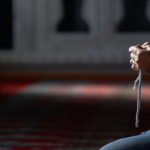
29 August
GOOD CHARACTER RESEMBLES EMAAN
Good character resembles Îmân and embellishes Islam. Muslims ought to eradicate themselves from wrongdoings and enhance themselves with noble manners. Evil misleads an individual to sin, on the other hand good leads to fortune and salvation in the world and the hereafter...
READ MORE
14 August
ALLAH LOVES THOSE WHO REPENT FROM THEIR SINS
Our Prophet(pbuh) quoted: “There is no one more beloved to Allâh Ta‘âlâ than a juvenile who atones from his sins. Also there is no one more detested by Allâh Ta‘âlâ than an elderly persevering in sins.” (Kanz al-‘Ummâl)
READ MORE
16 September
The Virtue of Jumuah
Jumu’ah (Friday) is considered holy by Muslims. In a Hadith Al-Sharif it states: The best day on which the sun has risen is Friday. Hazrat Adam was made on Friday, on it he was granted access to Paradise and on it he was taken out from therein. The Hour will not be established but on Friday.”...
READ MORE
30 September
The Sahaba Kiram (The Companions)
Imam Rabbani (QS), stated in one of his letters: Each sect, from the seventy-three claim that they are the true followers of the Shari’ah and they firmly believe that they are among the group to spared from the blaze. In an Ayah, it states: “Each group rejoicing in its circle.” (Surah Rum, 32) bear witness to their conditions. As for the evidence regarding the separation of Firqah Al-Najiyah from the corrupt sects, Our Prophet (pbuh) quoted: They are those who follow the way which I and my companions follow.” ...
READ MORE
1 September
ABU BAKR as-SIDDIQ
He is the first free man to proclaim his faith after Our Prophet (pbuh) began spreading the message of Islam; he is the first of the Ashara Mubashara and the first of the rightly-guided caliphs. His name was initially Abdul-Kaaba. Following the arrival of Islam, Our Prophet (pbuh) selected Abdullah as his name. His patronym is Abu Bakr. He is famous with the sobriquets of as-Siddiq, al-Atiq and Jamiul Quran. The most famous being as-Siddiq. ..
READ MORE
9 October
Mawlid Al Nabi
Night of Mawlid is the night which our Prophet (pbuh) privileged the entire universe with his arrival. This event occurred on the 12th night of Rabi’ al Awwal on a Monday. Therefore, the 12th night of Rabi’al Awwal is a sacred night in the Hijri Calendar...
READ MORE
29 October
Zakat
Zakat is one of the five pillars of Islam. It factually means profusion, development, sanitation and being pure. Zakat is fard for a Muslim who is free, complete mind, pubescent and who has enough wealth to give Zakat. It is a yearly monetary ibadah that an eligible Muslim gifts to one of the eight groups chosen by Allah, Zakat is two point five percent of their wealth given in order to abide with Allah’s command...
READ MORE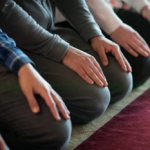
7 August
BROTHERHOOD IN ISLAM
The companionship among the fellow brothers in Islam grows with sincerity, morality and devotion. Sincerity among them leads to Wafâ, which is the consistency in companionship and the utmost level of love and honesty. Our Prophet (pbuh) implemented brotherhood in his companions through which love and honesty grew and their sustenance intensified...
READ MORE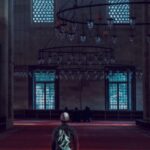
2 February
Repentance
“O you who have believed! Turn to Allāh in sincere repentance.” The mufassirīn who explained this āyah have said, “Repentance is farḍ al-‘ayn in every state and time.” Every person has the potential to commit a crime. Those who suppress this feeling that has been placed in them as a test, and do not get involved in crime, are deemed to be good people by society. Those who succumb to their bad feelings and commit crimes are bad people. Those who admit their mistake and confess their guilt with remorse benefit from amnesty or reduction in punishment.
READ MORE
27 January
Overcoming Anger
Anger is an extreme emotion that makes a person’s blood swell, darkens the eyes, and corrupts thinking. At the same time, it is a means of testing for humans. The believers who can control their nafs and contain their anger are praised by Allāh Ta‘ālā and Rasūlullāh (sallallāhu ‘alayhi wa sallam). It is stated in Sūrah Shurā āyah 37: “Those believers avoid the major sins and shameful acts. And when they are angry, they forgive.”
READ MORE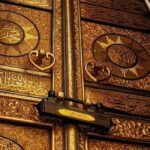
19 January
Rajab al- Sharīf and the Night of Raghāib
We are very close to the month of Rajab al- Sharīf, the first of the three blessed months, when the sea of divine mercy gushes, barakah and enlightenment overflows, and the people of the heart attain their purpose. We will reach the first day of Rajab on Wednesday 2nd February, and the Night of Raghāib on Thursday 3rd February. Allāh Ta‘ālā says in the Qur’ān al-Karīm: “Indeed, the number of months ordained by Allāh is twelve in the register of Allāh from the day He created the heavens and the earth. Of these four are sacred. That is the correct law of Allāh. So do not wrong yourselves during these months.”
READ MORE
22 December
Sila al-Rahim (Ties of Kinship)
Our great religion, Islam, has given a lot of importance to people meeting and talking with each other and living in a society. Sincerity, humility, mutual assistance, courtesy, respect and love are essential for people to get along with each other. Going and seeing relatives, visiting close ones, asking about their state and health, sharing their joy and sadness and helping relatives is called Sila al-Rahim, which are among our moral duties
READ MORE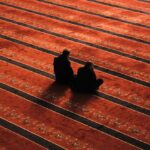
15 December
Observing Rights Between Fellow Humans
In fiqh, a person’s belongings are their movable and immovable property, money they are owed, things that a person can legitimately benefit from, such as a house or shop they rent, and nominal values which are not visible in sight such as their honour and dignity. When these are transgressed, their rights become due. Rights come with certain responsibilities and duties. Since humans have to live in groups, they are obliged to fulfil these responsibilities and duties.
READ MORE
13 January
Nāfilah Ibādah
Nāfilah means extra. Worships other than farḍ and wājib are called Nāfilah Ibādah. The farḍs are our duties of servitude that we must do, its rewards are great and if we do not fulfil them, we are obliged to give account for them. On the other hand, nāfilah are acts of worship that we perform as a manifestation of our sincerity and ikhlās, even though we are not obliged to do so, which helps us gain the riḍā of Allāh Ta‘ālā.
READ MORE
29 December
Importance of Health in Islam
One of the countless blessings of Allāh Ta‘ālā that are upon us is the BLESSING OF HEALTH. It is necessary for us to grasp the value of this blessing and to give shukr. Since the religion of Islam gives maximum importance to both the material and spiritual health of people, it has given priority to protecting health before becoming sick, that is, it has given importance to preventive medicine.
READ MORE
8 December
Duties and Responsibilities in the Family
Families are the cornerstones of society. A peaceful and healthy society depends on the soundness of families, and the soundness of families depends on the family members being conscious of their responsibilities and fulfilling them properly. The institution of family, which has important duties in the continuation of the existence of society, has an imperative place in the protection of religious values of life, the preservation of national and individual existence, its development, continuity and transferring to future generations...
READ MOREABOUT US
Hong Kong Islamic Culture and Welfare Society (ICWS) is registered as a charitable and non-profit organisation which was founded in 2009 by the Muslim Community in Hong Kong. The organisation now has members, donors and students from Muslim communities of numerous nations.
CONTACT US
-
Islamic Cultural Center
2/F Sun Sing Building
290 Shau Kei Wan Road
- 6840 4859
- [email protected]
-
Madrasah Timing
09 am - 09 pm Mon-Fri
SUBSCRIBE
Enter your e-mail and don't miss out on the latest news.
- HONG KONG ICWS - Copyright 2022
